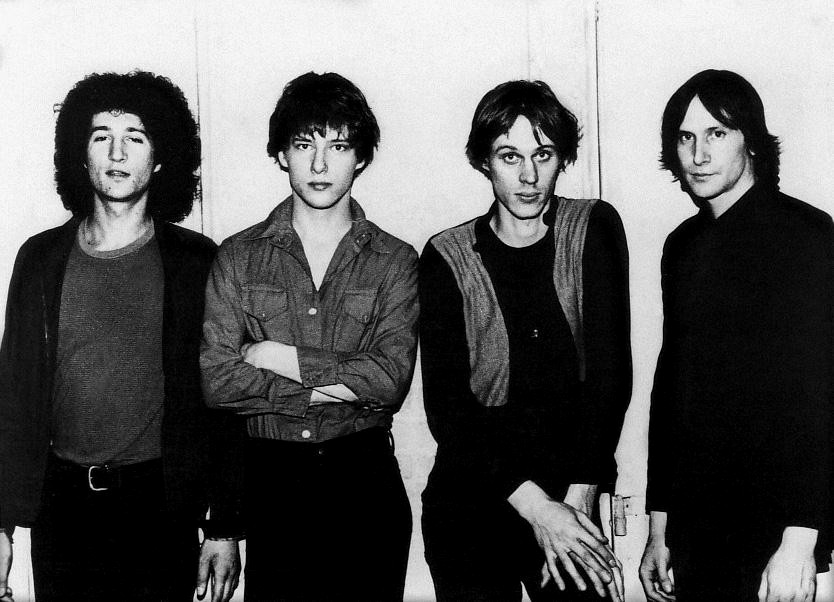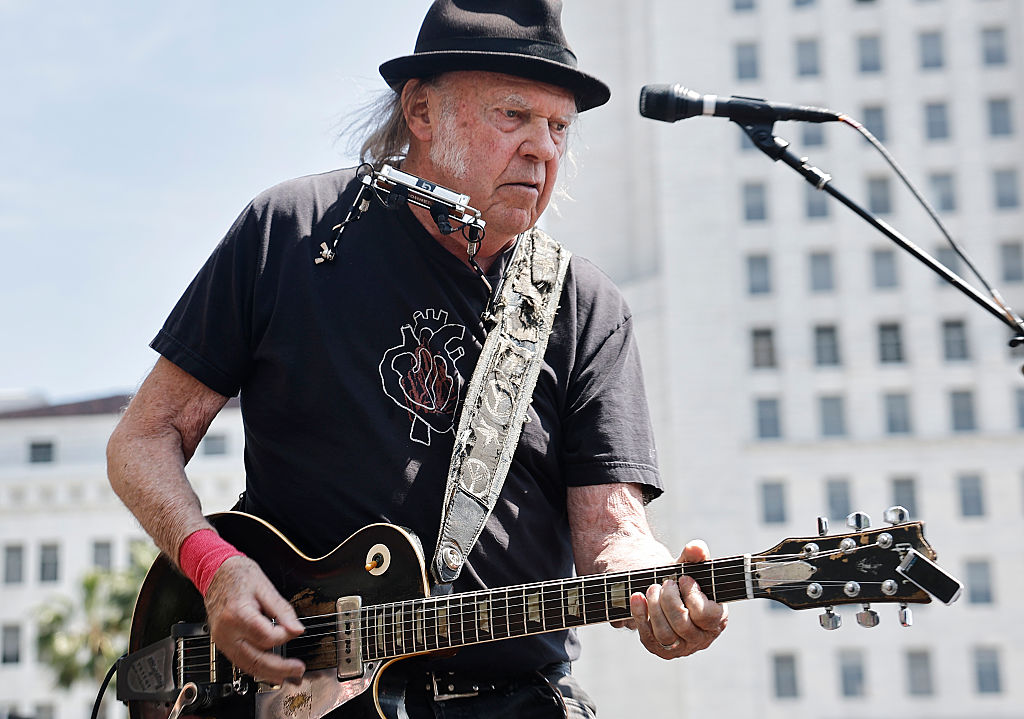Silver Jews and Purple Mountains leader David Berman died by suicide last week. Berman's longtime record label Drag City broke the news with a tweet last Wednesday, and today they've posted a lengthier tribute to Berman.
Early on, the post reads, "We have to keep reminding ourselves that it is real. Then we’re reminded that is real. Then we wish it wasn’t real. It’s like a trapeze act, and we are the worst acrobats, fumbling these truths from swing to swing. Day after day..." The eulogy goes on to discuss the nature of Berman's depression, encouraging those fighting the same battle to seek help. The message ends with an appreciation of the man and his work. Its full text is reprinted below.
Drag City began releasing Berman's creative output in 1992. The label released all six Silver Jews full-lengths and Berman's poetry collection Actual Air. Berman returned to music for the first time in a decade with this year's self-titled debut as Purple Mountains, which he recorded while living in an apartment above Drag City's Chicago office.
In reply to Drag City's initial tweet announcing Berman's death, Pavement's Bob Nastanovich -- Berman's college friend and the original drummer in Silver Jews -- expressed gratitude for the label's longtime support of Berman's work: "I am extremely grateful that Dan Koretzky and everyone at Drag City came in to David's life roughly thirty years ago," Nastanovich wrote. "Without Drag City, David's work, as a poet and musician would not have been read or heard. Their artist-label relationship was unique, unprecedented & beautiful." Nastanovich and his Pavement/Silver Jews bandmate Stephen Malkmus posted additional tributes last week.
Read the full text of Drag City's eulogy for Berman below.
You probably already know this, but on Wednesday morning, David Berman took his own life. He’s gone.
We have to keep reminding ourselves that it is real. Then we’re reminded that is real. Then we wish it wasn’t real. It’s like a trapeze act, and we are the worst acrobats, fumbling these truths from swing to swing. Day after day...
Everybody says these things after a suicide – and this week, we know very specifically why they do. For instance: five minutes ago, we were in tears. Five minutes before that, hope. Before that, rage. And now, nothing.
We hope that everyone who feels the same way, who has thoughts like the kind that led David to this, please stop what you’re doing and take them very seriously. Talk to someone about them. Stay with us. We count ourselves among those on both the speaking and listening ends of these conversations, and these feelings are not foreign to us.
It can be okay. Very likely it WILL be okay. It was okay so many times before.
Call the 1-800-273-8255. That's the National Suicide Prevention Hotline. Here's a link for resources outside the USA.
But also, in the very likely chance you are reading this on your phone, know that you are very, very likely already in possession of dozens (maybe even hundreds) of suicide prevention hotlines. These are the numbers of your family members, your close friends, and who knows, maybe even casual acquaintances. Whether they are aware of it or not, and whether you are aware of it or not, they are all waiting to hear from you. And possibly to be heard by you. If not, do you really need them in your fucking phone?
We don't claim to know or understand anyone's given set of circumstances, at times we don't understand our own. But in a universal sense we believe that open dialogue may open perspectives and viewpoints and clear a path for emotional change and relief. If there is one thing David taught us, words = hope. And we hang onto his every word, even as he is no longer able to continue the conversation.
So perhaps when you make the call and talk to somebody, for even a few minutes, at the very least there's a chance the spell will pass. One of the last times we spoke with David, as he was dealing with mundane but harrowing travel logistics, he called in a panic:
(panic) "Car trouble! Not sure what to do!!!"
(gravelly voice) "Did you call a tow truck?"
"Oh my GOD you sound AWFUL! Are you sick?"
"Yes, I have a little flu or something. Did you call AAA?"
(calmer) "Yeah, I called them, they said they'd be here soon." (laughs) "Jesus, you really sound like shit!"
"So you're good?"
"Yeah, I'm fine. Get some rest!" (laughs)
And he was fine, for quite a while after that. So talk. Or text even! But give yourself the one option that always caused pause and reflection from even a literal genius like David: no-one really knows the outcome of any given situation, so what if it does indeed get better? At the very least, while considering this, the pleasure of the time we have together here may continue on its already too-finite path.
For David however, the struggle is done. His decades-long fight against what he termed "treatment-resistant" depression is over. We can tell you with authority, the problem wasn't drugs -- he had made hard drugs a thing of his past for over a decade. His problem wasn't debt -- he knew his new work and tour looked to settle that. It wasn't family estrangement -- he remained close with his wife, family and friends to the end. He was subject to pervasive, chronic, chemical depression, and fought it daily, as best as he was able.
Now, we miss David incalculably, like a phantom limb we keep willing to help us up. It's not growing back, we will have to work around this for the rest of our time.
David was a such a brilliant citizen of the world – a contrarian, an anarchist, a cheerleader and a friend. We delighted in sharing space with him. It was a comfort and a strength having traveled the years with him. He always gave us new ways to think about everything. Almost everything we can think has to do with stuff he said or did. His was a continuous flow of phenomenal ideas, both good and bad - and sometimes his most impossible ideas were the best ones. His moods of giddiness and despair, of loud and quiet. His stubbornness, his ungovernable nature - and then, suddenly, an ability to hear and perceive so deeply and compassionately what a person was communicating and feeling, with an empathy we didn't even know possible. For all his demons, spending time in his company brought more joy and jokes and laughter than was literally imaginable.
David's brilliant work, his songs, poems and cartoons, were disguised as entertainments. In fact, wherever those works were transmitted they engendered great responses of joy and comfort and a recognition of seismic empathy beyond words. In the long run this will perhaps be the most important part of what we all agreed so long ago that we were doing together.
It feels like there’s little more to say about David’s place in the world right now that he hasn’t already said himself. Some of his incredible turns of phrase seem to have been written for this awful moment. But know that they weren't. They were written in lieu of this moment, to replace this moment, showing the world (and himself) that maybe he didn't truly know what was going to happen next.
It’s some relief to think that his suffering is over. But we can’t help but wish he was still with us. Even though we won’t be hearing any more from him, we know in our bones that we’re gonna spend the rest of our lives thinking about these things anyway. It's a major loss, we see your pain and share it, and support and grieve with all of you, however you see fit.
Our love, thoughts and prayers are with his wife, family and friends at this time. And with you.
As expressed in Drag City's message, if you or anyone you know is struggling, please call the National Suicide Prevention Hotline at 1-800-273-8255, or if you're outside the US, contact a crisis center in your country.






